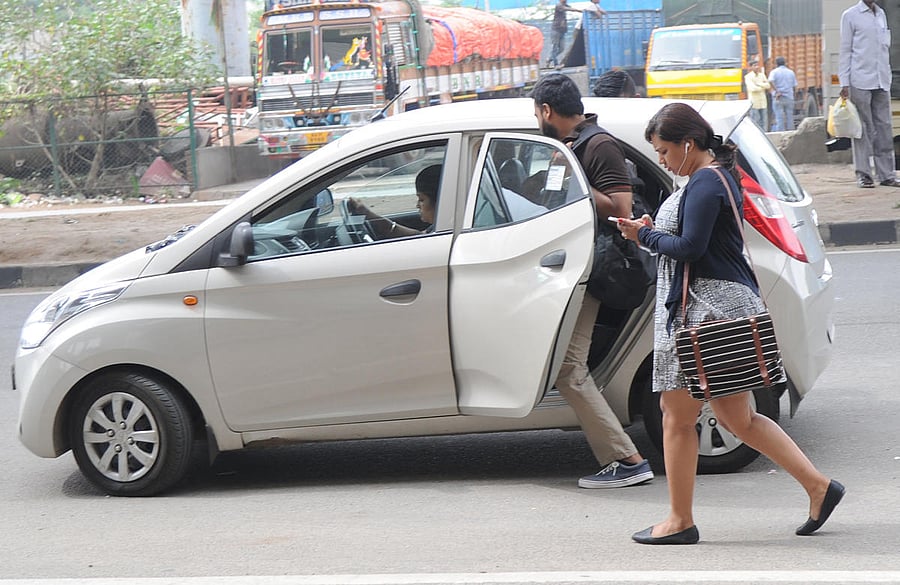
Software professional Venkatesh Prasad spends four hours every day, stuck in Bengaluru’s infamous traffic jams. For, a city with over 70 lakh vehicles owned by a humongous population of more than 1.2 crore can have no other way. Add poor urban planning, haphazard parking, disregard for traffic rules and poorly managed development, and you have a recipe for chaos.
One way out is car-pooling, feels Prasad. It is an effective way to reduce traffic woes because more number of people drive to the same location in the same car, abandoning the need to drive their individual cars. Since vehicular density on the roads is greatly reduced, pollution level drops. Besides, he says, it is also easier on the wallet considering the fuel prices also.
Additional Commissioner of Police, R Hitendra says over the last 10 years, 45 lakh vehicles have been added to the city roads. “There is no room for more. Car-pooling should be encouraged,” he points out.
Amrutha R, a student, has seen many individuals who own luxury SUVs or MUVs travelling alone. “It’s a waste of fuel and also seating capacity. A single car can accomodate a minimum of four people easily. Moreover four or more vehicles are replaced by one,” she explains.
Another positive: “It can also provide a better social structure, with people interacting with each other more often.” For Sridhar A, who travels nearly 40 km daily for work, travelling together is the best way. He says, “I go to work along with friends whenever possible because it is fun and economical. Travelling alone in this nightmarish traffic is annoying and stressful.”
A regular user of carpool mobile applications, Amrut Pujari says, “I have taken 150 rides using the Quickride app. It is hassle-free and reasonable. The app also offers bike pooling and ride sharing. I was new to the city, so it also helped in networking and meeting new people. Since the drivers are authorised, it is safe even for women.”
Many groups on social media platforms and multinational companies promote car-pooling. For instance, Cisco even provides separate parking spaces for its car-pooling employees. “My colleagues were drawn to the idea of car-pooling because of the posters encouraging employees to take up ride sharing in our corridor at our workplace,” says Pujari, an employee of Bosch.
But this peer-to-peer business model is yet to become as popular as it is in the West. It has its own share of drawbacks such as flexibility and adjustability of individuals, annoying co-passengers, ease with which infectious diseases can spread and more. One also needs to have access to a smartphone, good network and decent internet speed to book a ride. Car-pooling is not feasible in conditions where mobile networks are unavailable.
Car-pooling could be time-consuming because it requires the driver to pick every individual from different pick-up points. Some of the apps set a stipulated time during which the passenger should reach the pick-up point. Ankit Pattnaik, an MTech student says, “They give us about three minutes to reach the point. Sometimes due to GPS and network issues, we fail to reach. We’’re then forced to book another cab and pay a fine”.
Safety of women is another concern. Medha Parashar, a software engineer explains, “Informal car-pooling could be risky for women during the night. I generally use popular apps so I feel safe”. Gourave Sengupta, a student looks for ‘females only’ apps such as Ridenet. “That’s a safer option for women.”
Ola, Quickride, Uber, BlaBlaCar, ToGo and Ridenet are among the car-pool mobile apps currently in vogue in Bengaluru and elsewhere. Informal car-pooling is done with friends while apps such as Uber and Ola have their authorised drivers pick up different people from pickup points. Quickride, Ridenet and BlaBlaCar are apps that involve car-pooling by employees of the same company or an IT park.